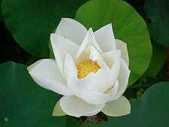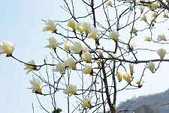第一阶段:基础修习阶段 THE BASIS OF PRACTICE
发布时间:2023-09-21 12:14:09作者:药师网Part 2: Walking The Path 第2篇:行道
2-3. Stages of Practice 修学阶段
2-3-3. THE BASIS OF PRACTICE 第一阶段:基础修习阶段
(result : giving up wrong beliefs 成果:舍弃错误信念)
What I'm going to tell you next, I remember from what teachers have told me. My father told me from the time I was a kid, I used to live on the paddy field with my father. He told me that every Buddha statue has the conciousness of the Buddha inhabiting in it, as big as a sesame seed. No matter, it's made of wood, silver, gold, brick, cement or glass, or if it has some sort of relics in it. When Buddhism is 5000 years old, it will be dark for 7 days and nights and those Buddha statues with relics in them, will fly up in the air and come together - I forgot where. Then those relics and Buddha statues scatter with a bang as loud as a gunshot and the conciousnesses inside come together to form a person : the body of prince Sidhartha and He will expound the Dhamma for 7 days and nights. Those who have the chance to listen to it and are wise, will be enlightened and realize Nibbana together with the Buddha ; those with little wisdom are compared with small, thin rice grains, they realize a lesser stage of enlightenment, depending on their level of awareness/wisdom, and some people listen but don't get anything out of it. That's what my father said.
接下来我要告诉你们的,是以前老师们告诉我的。我曾经和父亲生活在田里,从小他就告诉我:「不管是木头、银、金、砖、水泥或玻璃制作的,或不管里头有没有舍利,每一尊佛像都有佛陀的神识住在里面,而且像芝麻那么大,等佛教流传五千年以后,世界会变黑暗长达七天七夜,那些里头有舍利的佛像将会飞到空中聚会一处—我忘了是在哪里,然后那些舍利和佛像,会像炮击那么大声的“碰一声!”四散开来,里头的神识则会聚合成一个人—即悉达多太子的身体,而且他将说法七天七夜。那些有机缘听到他说法而且又有智慧的人,会和佛陀一起开悟及证得涅槃;另外一些人有如细小、干瘦之稻谷,只有一点智慧,则会依他们觉知与智慧的程度,得到较低的果证,而剩下的一些人虽然有听,但却了无所得。」这是我父亲告诉我的。
I used to think that having been born in this life, may I meet the Buddha when Buddhism is 5000 years old. I made merit, gave offerings and kept precepts no matter how difficult it was, I did it and kept thinking like that.
我以前常想:「希望我出生的这一世,就是佛教流传的第五千年,而且希望我能遇见佛陀。」我做功德、供养并持戒,不管是有多么困难,我都努力地做,并且一直那样想望着。
My father also told me that when there is darkness for 7 days and nights, 5000 years after the time of the Buddha, it will be so dark that one can't see a thing, one won't know who is who, not even one's family members, amd there will be a famine, people won't have food to eat and water to drink ; anything that's there is fought over and people get killed, fathers will eat their sons and sons will eat their fathers, husbands will eat their wives and wives will eat their husbands.
我父亲也告诉我:「在佛世五千年之后,会有七天七夜的黑暗,并且会黑暗到什么东西都看不到,没办法知道谁是谁,甚至自己家人都分不清。到时候会闹饥荒,人们没有食物吃,也没有水喝,任何事只要有争斗,就会有人伤亡,父子相吃,夫妻相食。」
(REALLY KNOWING, TRULY KNOWING, REALISING 真正的知道?如实真知?觉悟)
This is the kind of story that people in the old days would tell each other. When I started developing awareness according to this method of making use of movements, that I have been teaching, I got real knowledge and realisation ; before I didn't know this. I made merit but didn't know what merit was, I really didn't know, I thought that after death, I would get reborn in heaven, up in the sky and what it would be like up there, I didn't know - that's how it was before. Until I started developing awareness ; turning the hand up and down knowing it with awareness ; moving the arm in and out : knowing it with awareness ; blinking the eyes or breathing in and out : know it with awareness ; whether the breath is short or long : just know it with awareness. There is no need to recite a mantra or say anything internally while doing it. Leaning to the left and the right, raising and lowering one's head, bending and stretching, moving about, swallowing saliva down the throat etc. or any kind of movement at all, no matter in what posture : know it with awareness in that posture. Wisdom arose from this and I understood Rupa-Nama.
这是老一辈的人彼此相传的故事,在我开始依我一向教导的这个方法,利用动作培养觉性之后,我得到了真正的智慧和觉悟;以前我并不知道,所以我做功德但却不知道什么是功德,我真的不知道,我只是想:我死后可以投生到天堂,生在天空高高的地方,或想:那上面是什么样子?但我却不知道什么是天堂—我以前就是那样。直到我开始培养觉性:手翻上翻下时,用觉性感知它;手臂曲伸时,用觉性感知它;眨眼睛或入出息时,用觉性感知它,无论气息是短或长,只是单纯地用觉性感知它,不需持咒或在练习时心里默念什么,只是在左倾右斜、抬头低头、弯腰伸直、往来行走、吞口水,乃至所有任何动作时,不管是什么姿势,都用觉性感知那个姿势当下的动作。结果,智慧就这样生起了,而且我了悟了“色-名(Rupa-Nama, 身-心)”。
Before I didn't know at all what Rupa-Nama was, I just knew it by memory, I really didn't know. Knowing has many levels, becoming successively deeper and different, namely knowing from memory, comprehension, realising and truly knowing. This last one is the real knowing !
以前我一点都不悟什么是色-名,只是依见闻记忆而知,而不是真正的知道。“知道(know)”有很多层次并且逐位深入、层层不同,这些层次就是:(1)从见闻记忆而知、(2)由思惟理解而知、(3)觉悟而知、(4)亲证而如实真知。最后一个才是真正的知道!
(THE RESULT OF THE BASIS OF PRACTICE : KNOWING RUPA-NAMA 基础修习阶段的成果:了悟色-名)
I would like to insist that this method of developing awareness made me understand Rupa-Nama. Rupa and Nama are connected ; I'll tell you about it. Before I knew this, I was sitting moving my hands when a mother scorpion with babies fell on my leg, I was wearing shorts ; I was still a layman, at the time. Normally, when something falls on me like that, I would brush it off straight away, but that time I didn't brush it off, I just watched it ; the baby scorpions ran all over my leg. At that moment, I saw that the scorpions were Rupa and Nama, and my leg was also Rupa and Nama, so I understood Rupa- Nama.
我要跟你们强调:这个培养觉性的方法让我了悟“色-名”。色与名是一体相关的,我会跟你们说明这点。在了悟这点之前,我那时正坐着,移动着我的手臂,突然一只母蝎子带着小蝎子掉在我的腿上,那时我还是个在家众,穿着短裤。平常,如果有东西那样掉在我身上,我会马上把它拨掉;但那时候我没有去拨开它们,我只是看着,看小蝎子在我腿上爬来爬去。在那当下,我见到(了悟)那些蝎子是色与名,我的腿也是色与名,因而了悟了“色-名”。
Before that, I knew that form is impermanent, feeling is impermanent, perception is impermanent, volition is impermanent, conciousness is impermanent etc. I ordained as a novice for a year and a half, and another 6 months as a monk ; that was all I knew : knowing from memory, I could remember it but I didn't comprehend it, I didn't realize it, didn't really know it. But when I knew this time, I saw straight away that turning over the hand is Rupa and Nama.
在那之前,我知道色是无常,受是无常,想是无常,行是无常,识是无常等(只是记忆的知)。我曾剃度为沙弥一年半,以及当比丘六个月;那些是我所知道的一切:只是从见闻记忆而知,我脑子记得这些知识但却没有了解,没有觉悟,没有如实真知。但当我这次了悟时,我当下见到翻转手臂是色与名。
Next, I understood materiality acting - mentality acting (or Rupadhamma - Namadhamma). Dhamma is us, ourselves. Doing good and doing evil (or good dhamma and bad dhamma), are ourselves. And I understood materiality-disease and mentality-disease, I understood that there are 2 kinds of materiality-disease and mentality-disease : when our body is sick, for example, we have a headache, stomach-ache, we have a boil or a sore or whatever, it hurts and we feel it with the mind ; when the body is affected, the mind is affected too, this is materiality/mentality-disease ; with this kind of disease we have to go and see a doctor, who will give us medicine and look after it. But another kind of materiality/mentality-disease is called spiritual disease, the body is healthy, one can eat and sleep normally but as soon as someone says something, we become pleased or displeased : with this kind of disease, we have to go and find the Dhamma. I understood this much, at first.
接着,我了悟“色身的动作-心的动转(或称色法-名法)”;了悟“法”就是我们,是我们自己,行善与作恶(或称善法与恶法)是我们自己。同时我了悟“身病(生理疾病)及心病(心理精神疾病)”,我了悟人有两种病:身病及心病。身体染了病,心也会染病,这就是身心疾病。当我们身体生了病,例如头疼、胃痛、发炎、溃疡或其它任何病,那会很痛而且我们心也感觉到痛;有了这种身体疾病我们必须去看医生,他会给我们药,照料我们的病。但另外有一种叫做心灵疾病,身体是健康的,吃饭和睡觉都很正常,但当有人说了什么话,我们立即变得高兴或不悦,有这种心灵疾病我们必须去寻求正法,我最初就只了知这么多。
From that, I knew Instability, Impermanence and Non-selfhood ; turning the hand up and down is compelled by nature, blinking the eyes and breathing is compelled, whatever one thinks, it's all compelled. Dukkham-Annicam-Anatta as I comprehend it, are like this. Dukkham is inseperable from materiality ; Annicam means not permanent ; Anatta means we can not control things : things change by themselves. Imagine yourself to be a lump of meat, it is a lump of Dukkha ; know it for what it is ! When I saw like this, I reflected on the condition of grey hair, broken teeth or back pain when sitting for a long time etc. as Dukkha, but I say that that's not Dukkha ; that is Dukkhavedana, sadness, grief ; it is not Dukkham- Annicam-Anatta. Instability-Impermanence-Non-selfhood are the postures that's how I understand it.
从那之后,我又了悟“苦(instability)、无常(impermanence)和无我(Non-selfhood)”;了悟翻手覆手本质是苦的逼迫,眨眼和呼吸也是苦的逼迫,一个人无论想什么也都是苦的逼迫。我所了悟的苦、无常、无我是这样的:“苦”与物质(或色身)是有关连的;“无常”意指没有永恒不变的;“无我”意指我们不能主宰事物,一切事物会自行变化。想象你自己是一堆肉,那不过是一堆苦,你要如实的了知它!当我如此见到,我深思一般认为是苦的白发、蛀牙或坐久时的背痛等情境,但我得说那并不是苦,那只是苦受、悲哀、忧伤,那并不是所谓的苦、无常、无我;苦、无常、无我是一种心灵状态,这是我所了悟的。
So I contemplated what it says in the scriptures that teachers have taught : to know with awareness the 4 postures of sitting, standing, walking and lying down when sitting : know it with awareness ; when standing : know it with awareness ; when walking : know it with awareness ; when lying down : know it with awareness. But the Buddha said this much is still not enough : He taught to know with awareness the minor postures as well, i.e. bending, stretching and making movements, any kind of movement ; know it with awareness in that posture, all the time. The most important thing is to know with awareness ; whatever happens you will see, know and understand - this is what I experienced. In practicing, you have to try not to have gaps : make movements continuously and develop awareness continuously, know with awareness all the time, don't talk and chitchat a lot.
于是我沉思导师教过的经文(《大念住经》):用觉性去感知行、住、坐、卧四种姿势:坐着时用觉性感知它;站立时用觉性感知它;行走时用觉性感知它;躺下时用觉性感知它。但佛陀说:这样还不够,他教导我们还要用觉性去感知微细的姿势动作,比如弯曲、伸直和任何其它动作,都要持续用觉性感知那个姿势当下的动作,最重要的是用觉性去感知,有了觉性,不管生起任何事物你就能看见、知道和了悟—这是我所体悟的。修习时,你必须努力持续不断:不停地动以及持续地培养觉性,随时用觉性去感知,不要多说话及聊天。
Having comprehended Instability, Impermanence and Non-selfhood, I understood convention. Ghosts, angels, hell, heaven etc. are suppositions. Know convention fully and completely. Ordaining and disrobing is convention, a Buddha-statue is convention. I know all about convention !
在了悟苦、无常和无我之后,我又了悟了一般“传统世俗法(sammuti)”:了悟鬼魅、天人、地狱、天堂等是假名表相的世俗法,我完全彻底地了悟传统世俗法。比如剃度和还俗是传统世俗的制度,佛像是传统世俗的施设,我了悟所有传统世俗法!
Knowing that, I understood what religion is. Religion means teaching, something that goes into people's ears. But the real meaning of religion is all of us, people. There is a lot of convention ; that's why I said to know it fully and completely. Before, I used to think that the temples, the Buddha-statues or the scriptures were religion, that's what I thought. But when I started practicing this method, I realized that real religion is a person. As for Buddhism, it is awareness, concentration and wisdom. Buddha is the knowing ; the word Buddha translates as the one who knows, the awakened one , the joyful one - I understood it like this.
知道那些之后,我又了悟什么是“宗教”:宗教是指教导,亦即进入人们耳朵的东西,但“宗教”真正的意义是指我们所有人自己。我们有许多传统世俗法,所以我才说要完全彻底地了知。以前我认为:寺院、佛像或经典这些就是宗教,那是我以前的想法。但当我开始练习这个方法之后,我觉悟到:真正的“宗教”是人自已本身。至于“佛教(佛陀的教导)”,就是觉、定与慧。而“佛陀”则是觉者,“佛陀”翻译为知者、觉者、喜悦者—我是这么理解的。
After that, I knew evil and merit. Evil means stupidity, darkness or being heavy-hearted ; evil is to not understand things. Whatever people say : one believes the whole lot. This is what I understand real evil to be. But merit means to understand, it is something light. Merit is to be glad because one knows, one doesn't necessarily believe everything one hears. That my father told me there is a conciousness the size of a sesame seed in Buddha statues - actually it is in all of us people that there exists something that is able to be the one who knows, if we develop awareness in the right way, until awareness matures to be steadfast and perfect. This exists in men as well as women, regardless of the religion one believes in.
在那之后,我又了悟“罪恶和功德”。“罪恶”意思是愚蠢、黑暗或是沉重的;罪恶是不明了事物(真相)。不管人家说什么都盲目相信,这就是我所了悟的真正的罪恶。而“功德”的意思是明了,是光明的东西。功德是因为知道真相而感到欢喜,人们不必相信所听到的每一件事。我父亲告诉我的那个佛像里芝麻大的神识—亦即可以让我们成为觉者的那个东西本就存在于我们所有人里头,那就是我们的觉性,只要我们正确地培养觉性,它就能渐渐成熟乃至坚固圆满。这觉性存在于男人及女人里头,和一个人信仰什么宗教无关。
Knowing all this is the result of developing awareness, the results are not things that have value in making a living. This concludes the basis of practice.
了悟上述所有这些就是培养觉性的成果,这种果实不是对谋生方面有价值的东西,但是它能完成我们基础阶段的修习。
(DEFILEMENTS DUE TO VIPASSANA ARE NEGATIVIE RESULTS 观障(由毘婆奢那引起的染污)是负面的成果)
Having understood all this, from Rupa-Nama until evil and merit, more knowledge arose ; I knew this and that until my head ached, whatever came up became clear, when telling others, they just had to believe it. Knowing like this, joy and gladness spring up, but it is delusion, one is no longer watching Rupa-Nama, instead one gets lost in the knowledge that one newly knows .
在了解从色-名一直到罪恶及功德的所有这些之后,我又生起更多的智慧:了知这个、那个……乃至头都痛了,不管生起什么我都很清楚,所以当我跟别人说时,他们都不得不信服。达到这样的了悟,就会生起喜悦和欢喜(即喜障),但这些是迷惑,会使你忘了观照色-名,反而迷失在你刚了悟的智慧上。
This knowledge is the knowledge of defilements due to Vipassana, but at the time that these states of mind were there, I didn't know it. It's just like someone who's drunk : he won't listen to anybody, he will insist that he's not drunk, even though he gets more drunk, the more he drinks. Somebody who's crazy is the same : if someone says don't go or don't say that, he or she will go or say it all the more and if someone takes him or her to the hospital to see the doctor, that person doesn't want to go because he or she doesn't realize that he or she is mad.
这种智慧是一种观障(由毘婆奢那而来的染污)的智慧,但是当时我并不知道我有这些心态,就好像一个醉汉,谁的话都不听,还坚持说自己没醉,甚至越醉就喝得更多;发疯的人也一样,如果有人跟他说不要去或不要说,他反而更要去、硬要说,如果有人带他去医院看医生,他不会想去,因为他不知道自己疯了。
The more somebody has defilements due to Vipassana, the more he or she talks, explains and expounds by him or herself. I was walking and talked by myself, standing I talked by myself, or even talking in the mind without sound. Sitting, doing the rythmic meditation, I talked by myself ; this is the knowledge coming from defilements due to Vipassana. I didn't know it at the time. This is the cause of it.

一个人观障(由毘婆奢那而生起的染污)越多,就越是会自言自语、自我解释与自我阐述的情形。我当时就是走路自言自语,站着自言自语,甚至会在心底无声的喃喃自语,坐着练手部规律动作时也自言自语,这就是观障(来自毘婆奢那的染污)的智慧,但我当时不知道自言自语的原因,这个就是它的原因—由毘婆奢那而生起!
Therefore, I say that whatever may happen to anybody, whatever colours, lights, ghosts or angels you may see, that's not it ! I have experience, I know all about this stuff and I can confidently say that I don't believe anybody. But at that time, I still didn't know ; as I was doing walking-meditation, I saw a lottery number appearing, I really saw it clearly. What do you think of that ? Because the mind was thinking and I didn't see my own mind. Pacing up and down, and then I saw this big number in the sky, as big as my hand, turning around I could still see it ; I was thinking to buy a lottery ticket and get the first prize ! Then, I saw all my bones swaying, but fortunately I was aware. Instead of buying a lottery ticket, I sat down and pointed my feet to the number and thought : 'This is not real, my heel is real'. What happened is that the number vanished in a flash, it just happened by itself.
因此我才说:不管你遇到了什么东西,不管你看到了什么颜色、光明、鬼魅或天神,那都不是智慧!我曾经验过这些,我知道所有这些东西,并且我现在可以很有自信地说我不信靠任何人,但那个时候,我还没了悟,正当我在经行时,看到乐透号码出现,我真的清楚地看到。你认为那是怎么一回事呢?其实,那是因为我的心正在妄想而我没看见自己的心。那时我正来回地走来走去,然后就看到天空中出现这个跟我的手一样大的号码,我转身过去还是能看到,当时我还真有点想去买个乐透来中个头奖呢!…后来,我又看到我全身的骨头晃来晃去,不过还好!我有觉知。最后我并没有去买乐透,而是坐下来,抬起脚,指向数字,然后心想:“那不是真的,我这脚跟才是真的!”然后剎那间,那个号码就消失了,它就是这么自然发生的。
In developing awareness : don't stop or let any gaps arise ; really determine to do it ! What I'm telling you is a warning : WHATEVER YOU MAY COME TO KNOW ; DON'T WANT IT, DON'T MAKE IT INTO YOUR FOCUS. Know Rupa-Nama, materiality acting (Rupadhamma)- mentality acting (Namadhamma). The Dhamma is us. Know materiality/mentality disease, know Instability-Impermanence-Non-selfhood, know convention, religion, Buddhism, evil and merit, that completes it.
培养觉性时,不要中断或产生任何的空档,要真的下决心好好练习!现在我要警惕你们:“不管你了悟了什么,比如:了悟色-名、色身动作(色法)-心的动转(名法)、法就是我们;了悟身病、心病;了悟苦、无常、无我;或了悟世俗法、宗教、佛教、罪恶与功德;千万记得!通通都别要它,不要让它变成你的焦点!”那样才能圆满你的觉性。
These things are objects of insight, they are of the level of Rupa-Nama. Other objects or 'insights' outside of that, are not the real thing : whatever it may be that you come to know, you must realize that that's not it ! Let me tell you that I deny it ! On seeing those things, let go of it and catch the feeling of awareness - this is how I teach and understand.
这些所了悟的东西都是(能)观智 (insight, 内观智慧)的(所)观境,初阶练习阶段的所观境是属于色-名的层次范围,除此之外的其它所观境或从它们生起的层层观智(insights)则都不是真实的东西:所以不管你了悟了什么东西,你必须明白,那些都不是真的!我告诉你,如果是我,就不会相信那些!看到这些东西时,要放下,随它去,找回觉性的感知,这是我的教法与体悟。



